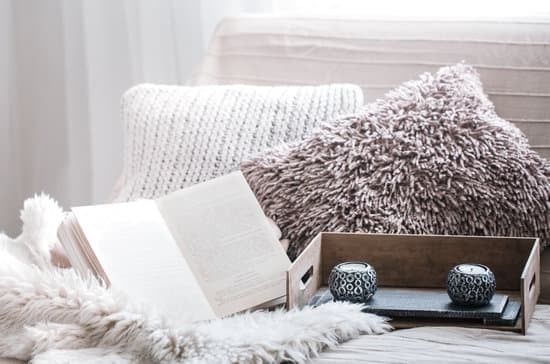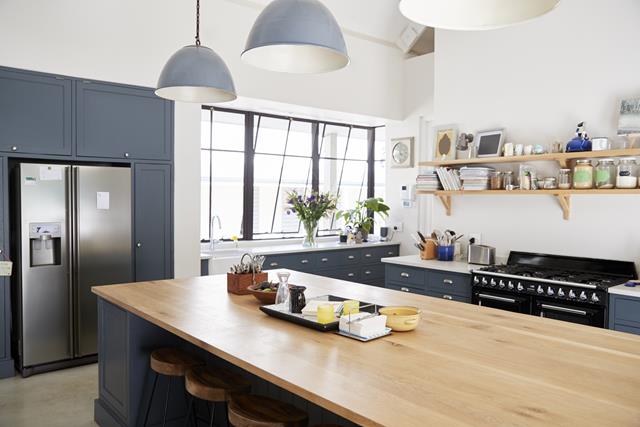Are you looking to start a home interior decorating business but not sure where to start? In this article, we will provide you with a comprehensive guide on how to start your own interior decorating business right from the comfort of your home.
Home interior decorating is a booming industry, and with the increasing demand for personalized and aesthetically pleasing living spaces, there has never been a better time to pursue a career in this field. Whether you have a passion for design or are looking for a fulfilling and creative career, starting a home interior decorating business can be a lucrative and rewarding opportunity.
To succeed in the home interior decorating industry, it’s essential to identify your niche and unique style that sets you apart from the competition. By understanding your target market and honing in on your specific design aesthetic, you can position yourself as a sought-after interior decorator in your area. Additionally, developing a solid business plan that outlines budgeting, pricing, and marketing strategies will provide you with a roadmap for success in the industry.
In this article, we will cover everything from setting up your home office for optimal productivity to building an impressive portfolio that showcases your work to potential clients. You’ll also learn about the importance of establishing a network within the home interior industry, understanding legal considerations, effective marketing and branding strategies, as well as managing finances for your budding business.
So if you’re ready to turn your passion for design into a thriving business, keep reading for valuable insights on how to start a successful home interior decorating venture.
Identifying Your Niche
When starting a home interior decorating business, it is crucial to identify your niche in the industry. Your unique style and target market will set you apart from competitors and attract clients who resonate with your aesthetic. One way to find your niche is to assess your personal style and preferences when it comes to interior design.
Are you drawn to modern, minimalist spaces, or do you have a penchant for cozy, traditional decor? Understanding your own style can help you determine the type of clients you want to work with and the services you want to offer.
Another important aspect of identifying your niche is conducting market research. Take the time to analyze the local or regional demand for various interior decorating styles. You may find that there is a growing interest in eco-friendly design, which could be an untapped niche for your business.
Additionally, consider the demographic characteristics of your target market, such as age, income level, and lifestyle preferences. This information will guide your marketing efforts and help you tailor your services to meet the specific needs of potential clients.
Ultimately, finding your niche in the home interior decorating industry requires a combination of self-reflection, market analysis, and a deep understanding of your ideal clientele. By honing in on what makes your approach unique, you can position yourself as a specialist in a particular style or service offering, making it easier to attract clients who are seeking exactly what you have to offer.
| Identifying Your Niche | Finding Your Unique Style |
|---|---|
| Conduct market research | Analyze personal style preferences |
| Assess local demand for various styles | Determine target client demographics |
Developing a Business Plan
Defining Your Vision and Mission
Before diving into the logistical aspects of starting a home interior decorating business, it’s important to define your vision and mission. What do you want to achieve with your business? What sets you apart from other interior decorators? Having a clear vision and mission will not only guide your business decisions, but also attract clients who resonate with your values and style.
Budgeting and Pricing Strategies
One of the key components of your business plan is budgeting and pricing. You’ll need to determine the initial investment required to start your business, including costs for tools, software, marketing materials, and any certifications or courses you may need. Additionally, establishing pricing strategies for your services is crucial. Research the market rates in your area, consider your experience level, and factor in overhead costs to set competitive yet profitable prices for your clients.
Marketing Strategies
No business can thrive without effective marketing strategies. As an aspiring home interior decorator, you’ll need to develop a marketing plan that includes online and offline tactics to reach potential clients. Utilize social media platforms to showcase your portfolio, engage with followers, and build brand awareness.
Networking with real estate agents, home builders, and local businesses can also be valuable for generating referrals and partnerships that can help grow your client base. Understanding how to start a home interior decorating business will not only require the creative aspect but also strategic planning for long-term success.
By carefully considering these essential aspects of developing a business plan for your home interior decorating business, you’ll be laying a solid foundation for a successful venture in this thriving industry.
Setting Up Your Home Office
Setting up a well-designed and efficient home office is essential for running a successful home interior decorating business. Your workspace should be both functional and inspiring, reflecting your unique style and creativity. Here are some tips for creating the perfect home office for your interior decorating business:
- Choose the right location: Select a space in your home that is quiet, well-lit, and conducive to creativity. Consider natural light, as it can have a significant impact on your mood and productivity.
- Invest in quality furniture: As an interior decorator, your workspace should reflect your sense of style. Choose furniture that is not only practical but also aesthetically pleasing. A comfortable chair, spacious desk, and adequate storage are essential.
- Organize your supplies: Keep all necessary supplies within reach, including fabric swatches, paint samples, design books, and any other tools of the trade. Consider implementing shelving units or organizational systems to keep everything tidy and easily accessible.
Having a visually appealing and well-organized home office will not only boost your productivity but also provide a professional setting for client meetings and consultations.
Furthermore how to start a home interior decorating business, creating an inviting workspace will allow you to showcase your design skills to potential clients who visit your home office.
It’s important to remember that while working from home offers flexibility and convenience, it’s crucial to maintain a professional image for your business. By designing an inspiring and functional home office space, you can set the tone for success in your interior decorating venture.
Building Your Portfolio
Internships and Apprenticeships
One of the best ways to gain experience in the home interior decorating industry is through internships or apprenticeships. Look for opportunities to work with established designers or home staging companies to learn the ropes and build valuable skills. These experiences can also provide you with projects to add to your portfolio, showcasing your design expertise to potential clients.
Pro Bono Projects
Consider taking on pro bono projects for friends, family, or local charities. While these projects may not initially bring in income, they can serve as valuable learning experiences and help you build a diverse portfolio. By generously offering your services, you can showcase your talent and craftsmanship while giving back to your community.
Showcasing Your Work
In today’s digital age, it’s essential to showcase your work online. Create a professional website or online portfolio where potential clients can view examples of your previous projects, read testimonials from satisfied customers, and learn more about your unique style and approach. You can also leverage social media platforms like Instagram and Pinterest to share captivating images of your work and engage with a broader audience.
By gaining hands-on experience through internships, pro bono projects, and meticulously showcasing your work online, you can effectively build a portfolio that demonstrates your skills and attracts potential clients to your home interior decorating business. Remember that consistency, attention to detail, and a strong brand identity will set you apart in this competitive industry.
Establishing a Network
When starting a home interior decorating business, one crucial aspect of success is establishing a strong network within the industry. Connecting with vendors, contractors, and other professionals can open doors to new opportunities, provide valuable resources, and help you deliver exceptional results for your clients. Here are some tips for effectively building your network in the home interior industry:
- Attend industry events and trade shows: Participating in local or national events related to home interior design and decoration can help you connect with vendors, suppliers, and other professionals. These events provide a great opportunity to showcase your work, build relationships, and stay updated on the latest trends and products in the market.
- Join professional organizations: Becoming a member of reputable interior design associations or organizations can give you access to a network of like-minded professionals. These groups often offer networking events, educational resources, and mentorship opportunities that can be invaluable as you grow your business.
- Cultivate relationships with suppliers: Building strong relationships with furniture suppliers, fabric manufacturers, and other vendors is essential for securing competitive pricing, accessing quality products, and staying informed about new materials and designs.
In addition to vendors and suppliers, establishing connections with contractors such as painters, carpenters, electricians, and plumbers is vital for ensuring smooth project execution. Collaborating with reliable contractors can enhance your service offerings and provide clients with a comprehensive home interior decorating experience.
Ultimately, fostering a strong network within the home interior industry not only enhances your business’s reputation but also opens up opportunities for collaboration on larger projects. By leveraging these connections effectively, you can expand your reach and elevate the quality of your services as you start or grow your home interior decorating business.
Legal Considerations
Starting a home interior decorating business is an exciting venture that allows you to showcase your creativity and design skills while making a living. However, it’s essential to understand the legal considerations and regulations involved in starting a home-based interior decorating business. By familiarizing yourself with these aspects, you can ensure that your business operates smoothly and within the boundaries of the law.
One of the first legal considerations when starting a home interior decorating business is to determine the legal structure of your enterprise. This involves deciding whether you want to operate as a sole proprietorship, partnership, limited liability company (LLC), or corporation. Each structure has its own implications for taxes, liability, and other legal aspects, so it’s crucial to choose the one that best aligns with your business goals.
In addition to choosing a legal structure, you may also need to obtain certain permits and licenses to legally operate your home interior decorating business. These requirements can vary depending on your location, so it’s important to research the specific rules and regulations in your area. Common permits may include a general business license, zoning permits for operating a business from home, and any special certifications related to interior design or decorating.
Furthermore, understanding intellectual property rights is essential when starting a home-based interior decorating business. This includes being aware of copyright laws for protecting your original designs and ensuring that you respect the intellectual property of others when sourcing materials or inspiration for your projects. Taking these legal considerations into account will help you start your home interior decorating business on the right foot while avoiding potential issues down the road.
Marketing and Branding
Before diving into the world of marketing and branding for your home interior decorating business, it’s crucial to understand the importance of promoting your services and creating a unique brand that will set you apart from competitors. Marketing involves communicating the value of your services to potential clients, while branding helps define who you are as a business and what sets you apart from others in the industry.
When it comes to promoting your services, consider different channels such as social media, email marketing, networking events, and partnerships with other businesses. Utilizing social media platforms such as Instagram, Pinterest, and Facebook can be an effective way to showcase your work, connect with potential clients, and build a loyal following. Sharing before-and-after photos of your projects, offering design tips and inspiration, and engaging with your audience can help to establish your presence in the interior decorating industry.
Creating a unique brand is essential for standing out in the home interior decorating business. This involves defining your unique style, values, and mission as a business.
Consider what sets you apart from other interior decorators – whether it’s a focus on sustainable design practices, specializing in a specific design style or niche market, or offering personalized services tailored to each client’s needs. Your brand should be reflected in all aspects of your business – from your logo and website design to the way you communicate with clients.
Leveraging social media is key for attracting clients in today’s digital age. In addition to showcasing your work on platforms like Instagram and Pinterest, consider running targeted ads on Facebook or collaborating with influencers in the home decor space.
Engaging with potential clients through social media can help build trust and credibility for your business. By consistently providing valuable content and showcasing your expertise in interior decorating, you can attract a steady stream of clients who resonate with your brand and services.
Managing Finances
When starting a home interior decorating business, managing finances is a crucial aspect of ensuring your success. Budgeting is key to understanding the financial health of your business and planning for future growth. It involves determining your startup costs, identifying ongoing expenses, and setting realistic revenue goals. By creating a detailed budget, you can make informed decisions about pricing, marketing strategies, and investment opportunities.
Invoicing is another essential part of managing finances for your home interior decorating business. It’s important to establish clear payment terms with your clients and generate professional invoices for your services. Timely and accurate invoicing not only ensures that you get paid on time but also helps maintain positive relationships with your clients. Additionally, keeping track of all invoices and payments will help you stay organized and monitor the financial performance of your business.
Moreover, effective management of finances involves careful tracking of income and expenses, as well as implementing sound financial practices such as separating personal and business accounts. Consider seeking professional advice from an accountant or financial advisor to ensure that you are compliant with tax regulations and to optimize your financial processes. With proper budgeting, invoicing, and overall financial management, you can set the foundation for a successful home interior decorating business.
By focusing on these aspects in managing finances for your home interior decorating business, you can ensure that you have a solid foundation on which to build a thriving venture. From keeping detailed records of income and expenses to creating professional invoices for clients, these practices will help you stay organized financially so that you can focus on delivering outstanding design services.
Conclusion
In conclusion, starting a home interior decorating business can be an exciting and rewarding venture for individuals with a passion for design and creativity. By following the steps outlined in this guide, aspiring entrepreneurs can pave the way for a successful career in the home interior decorating industry.
Identifying your niche in the market is crucial to standing out and attracting clients. Whether it’s specializing in modern minimalist design or cozy farmhouse style, finding your unique aesthetic will help you target the right audience for your services. Additionally, developing a comprehensive business plan, setting up a functional home office, building a strong portfolio, establishing a network of industry professionals, and understanding legal considerations are all essential aspects of starting a home interior decorating business.
Furthermore, marketing and branding strategies play a significant role in attracting potential clients. Leveraging social media platforms and creating a unique brand identity can help boost visibility and attract new opportunities for your business. Lastly, managing finances effectively is vital to ensuring the financial stability and longevity of your home interior decorating business.
With dedication, creativity, and strategic planning, anyone can turn their passion for interior design into a successful entrepreneurial endeavor. If you have always dreamed of starting your own interior design company but didn’t know where or how to start – now is the time to get started. By following these steps you can begin on that path today.
Frequently Asked Questions
How Do I Start a Decorating Business From Home?
Starting a decorating business from home first requires determining your niche and target market. Then, create a business plan, set up a home office, and obtain any necessary licenses or permits. Additionally, building a portfolio of your work and establishing an online presence through social media and a website can help attract clients.
Is Interior Decoration a Good Business?
Interior decoration can be a lucrative and rewarding business for those with a passion for design and creativity. It allows for flexibility in working with clients to create beautiful spaces while potentially earning a good income. However, like any business, it requires hard work, dedication, and the ability to market oneself effectively.
How Do I Get Started in Interior Decorating?
To get started in interior decorating, consider gaining relevant education or training through classes, workshops, or degree programs in interior design. Building a strong portfolio by volunteering to decorate for friends or family can also be beneficial. Networking with professionals in the industry and joining relevant associations can provide valuable support and resources as well.

Hello, lovely readers! I’m Sheila Collins, and I’m delighted to be your trusted guide on this exciting journey of home improvement, design, and lifestyle. As the founder and editor-in-chief of Home Guide Blog, I’m passionate about all things related to homes, and I’m here to share my knowledge, experiences, and insights with you.





